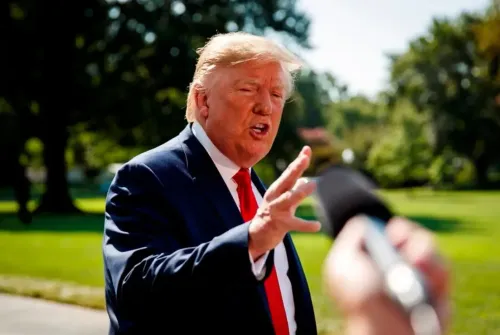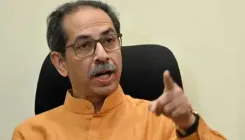Does the Pakistani Army Function as the Guardian of Ideologies and Religion?

Synopsis
Key Takeaways
- The Pakistani Army acts as a custodian of ideologies rather than focusing solely on national defense.
- Radical Islamist ideology influences Pakistan's stance towards neighboring countries, particularly India.
- Operation Sindoor marks a strategic shift in India's approach to terrorism.
- Former diplomat D.P. Srivastava provides insights into Pakistan's ideological landscape.
- Prime Minister Modi's G7 Summit invitation could improve bilateral relations with Canada.
New Delhi, June 8 (NationPress) Former Indian diplomat D.P. Srivastava asserted that the Pakistani Army undermines the concept of sovereignty by serving as a guardian of ideologies and religion, instead of prioritizing national borders like other military forces.
He criticized the radical Islamist ideology in Pakistan, which positions the nation against its neighboring countries, including India.
In an interview with IANS, the former diplomat also discussed Field Marshal General Asim Munir's speech on April 16, shortly before the Pahalgam terror attack, which resulted in the deaths of 26 innocent individuals at the hands of terrorists from The Resistance Front (TRF), affiliated with the Pakistan-based terror group Lashkar-e-Taiba.
He praised Operation Sindoor, describing it as a significant transformation in India's security strategy. He also commented on Prime Minister Narendra Modi's invitation to the G7 summit.
The following are excerpts from the interview:
IANS: Can you share insights about your book "Pakistan -- Ideologies, Strategies and Interests"?
D.P. Srivastava: During my postings in Karachi, Pakistan, in the early 1990s, I engaged with various issues, including Kashmir, the Pokhran nuclear test, and Kargil while serving in the UN division of the Ministry of External Affairs. The inspiration for the book came from my time in Karachi, particularly the phrase 'Nazaria-e-Pakistan', meaning the ideology of Pakistan, which was echoed by Gen Munir in his speech on April 16, just days before the Pahalgam attack. My book explores how ideology and elite interests shape Pakistan's domestic and foreign policies.
IANS: What does the ideology of Pakistan entail? Gen Asim Munir referred to a 'superior ideology' and the two-nation theory in his April 16 speech. What does this mean?
D.P. Srivastava: The ideology of Pakistan is ambiguous due to various influential factors within the nation. In 1972, two provincial governments were dissolved, and the National Awami Party was banned after the Supreme Court of Pakistan ruled that the party contradicted the ideology of Pakistan. This indicates that ideology preceded the Constitution in Pakistan.
Different interpretations of this ideology exist. Iqbal, recognized as a key figure in explaining Pakistani ideology, asserted that religion and state are intertwined in Islam, dismissing secularism and opposing nationalism.
Iqbal emphasized the concept of Umma, which promotes pan-Islamism, and these ideas contribute to Pakistan's ongoing struggles, as jihadist groups reject the Parliament's supremacy, a sovereignty also contested by the Army. This philosophy has historically pitted Pakistan against its neighbors, including what they label 'Hindu India', 'Shia Iran', and 'Sunni Afghanistan'.
IANS: What is the Pakistani Army's mindset?
D.P. Srivastava: Understanding the Pakistani Army's mindset requires looking back at Gen Asim Munir's April 16 speech, where he reminded the audience of their allegiance to a superior ideology. What does this ideology entail? Former Pakistani President Ayub Khan characterized it as Islam.
It is peculiar that Pakistani army leaders emphasize ideology and Islam, while in other countries, military forces protect national borders. In Pakistan, however, the army assumes the role of a custodian of ideologies and religion, resembling both a priest and a general.
The Pakistani army has entrenched its role in governance, relegating civilian parties to the sidelines. This mentality is evident in the neglect of socioeconomic indicators. The army perceives itself as the state, leading to disproportionate defense spending at the expense of economic development.
IANS: How do you evaluate Operation Sindoor? Is it indicative of a broader strategic shift in India's security approach toward Pakistan-sponsored cross-border terrorism?
D.P. Srivastava: Operation Sindoor signifies a fundamental shift in India's security doctrine, as emphasized by the Prime Minister. Pakistan has historically leveraged the threat of nuclear escalation in response to India's conventional actions against sub-conventional threats like terrorism.
However, during Operation Sindoor, there was no response from Pakistan regarding nuclear escalation. This indicates that Pakistan's threat has been exposed, revealing that it cannot escalate a local conflict or deter India from responding militarily to a terrorist attack, marking a significant shift in the strategic landscape. It also conveys to the international community that India will assert its right to self-defense responsibly.
India's initial actions targeted terror camps, avoiding civilian or military installations. Conversely, Pakistan launched attacks on Indian Air Force bases, prompting India to strike back against military targets, which swiftly brought Pakistan to a disadvantaged position. The Pakistani DGMO even contacted his Indian counterpart pleading for a ceasefire, a message that has resonated with the international community.
IANS: Prime Minister Modi has accepted an invitation from Canadian PM Mark Carney to the G7 Summit. Do you believe this will help improve the strained ties between India and Canada?
D.P. Srivastava: The Prime Minister's acceptance of the G7 summit invitation shifts the focus to global concerns rather than bilateral relations. However, such meetings facilitate discussions on a wide array of issues, providing an opportunity to restore bilateral relations.
India previously enjoyed strong ties with Canada, and I believe there is a growing understanding of India's position regarding terrorism within the new Canadian government. Consequently, I am optimistic that this visit will foster clearer communication between the two nations.









